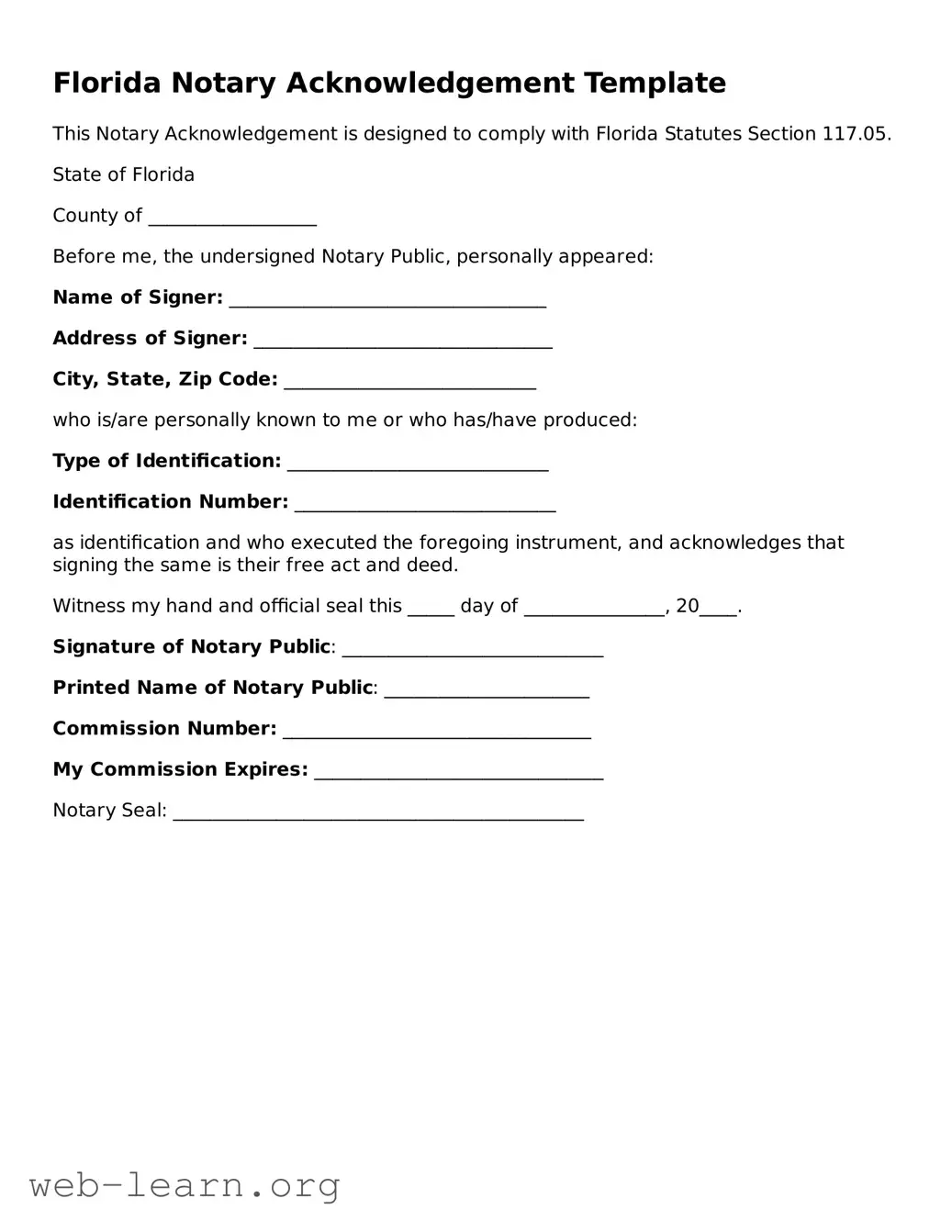Florida Notary Acknowledgement Template
This Notary Acknowledgement is designed to comply with Florida Statutes Section 117.05.
State of Florida
County of __________________
Before me, the undersigned Notary Public, personally appeared:
Name of Signer: __________________________________
Address of Signer: ________________________________
City, State, Zip Code: ___________________________
who is/are personally known to me or who has/have produced:
Type of Identification: ____________________________
Identification Number: ____________________________
as identification and who executed the foregoing instrument, and acknowledges that signing the same is their free act and deed.
Witness my hand and official seal this _____ day of _______________, 20____.
Signature of Notary Public: ____________________________
Printed Name of Notary Public: ______________________
Commission Number: _________________________________
My Commission Expires: _______________________________
Notary Seal: ____________________________________________
